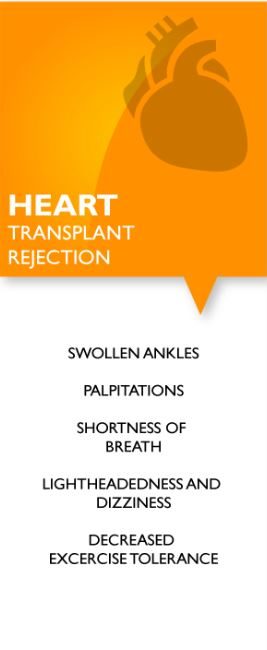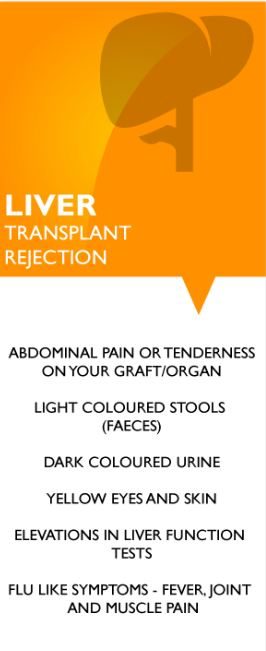What is rejection
When you have a transplant, your immune system identifies the new organ as a foreign body and tries to reject it. This is a normal immune response.
In order to control rejection, you’ll be given a combination of medicines to suppress your immune system and stop your body from attacking its new organ. These medicines are called immunosuppresants or anti-rejection drugs and must be taken for the entire life of your graft.
After transplant it’s not unusual to experience one or more episodes of rejection during the recovery period. These can be controlled in most cases by medication.
This is a risk you will need to be aware of throughout the life of your graft. The onset of rejection does not mean your organ will be lost, but prompt treatment is critical. The symptoms of rejection depend on the type of transplant you have.







